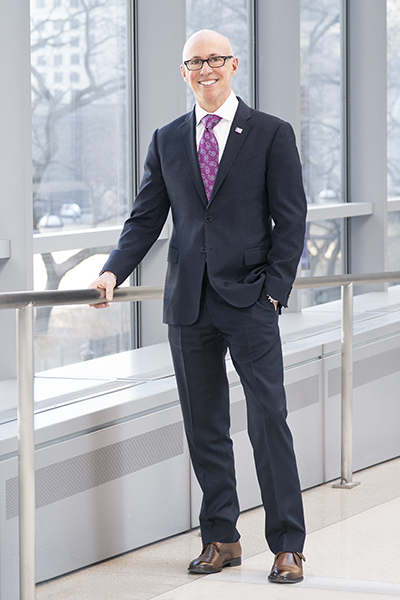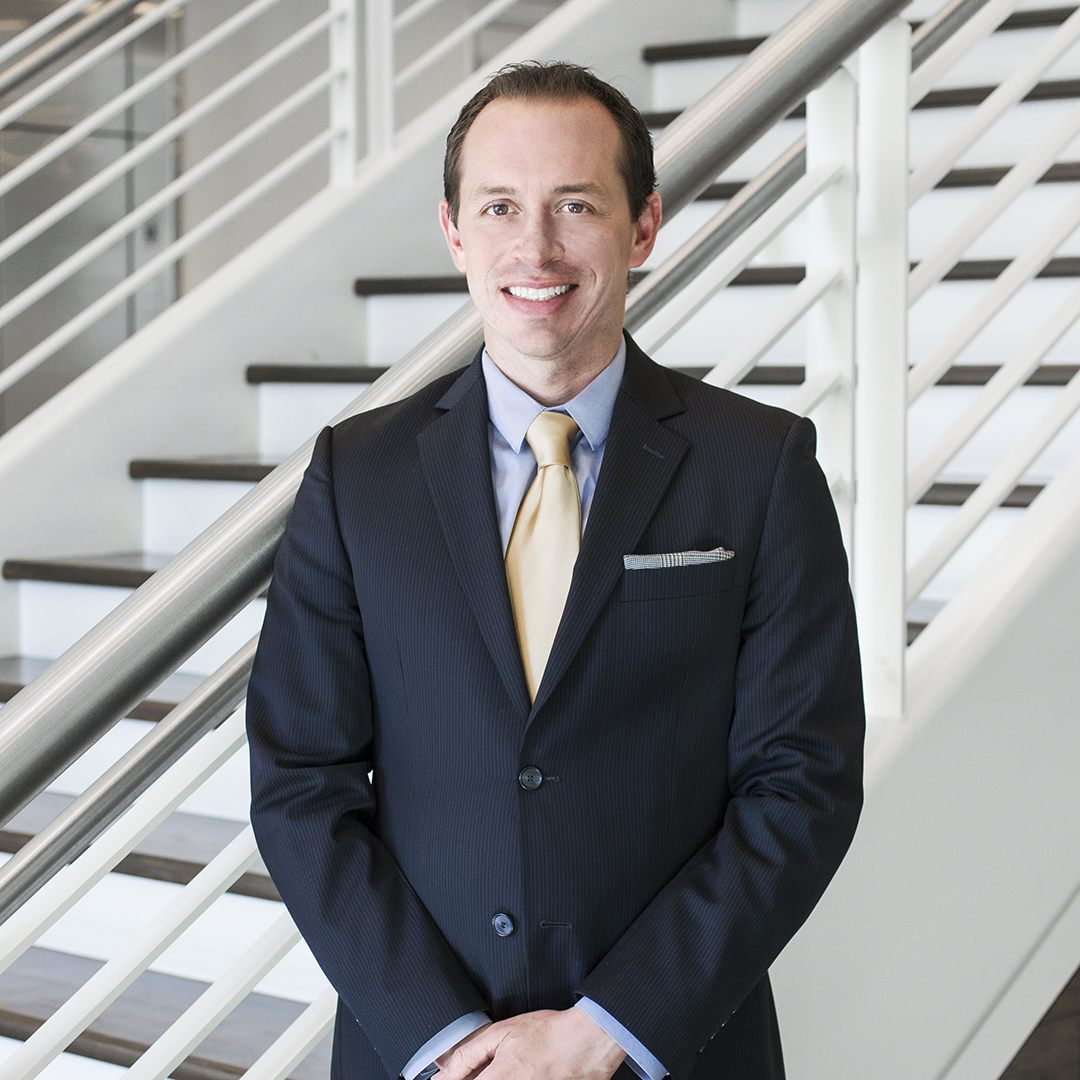While a second-year law student, Bill Bower identified a firm he really wanted to work for, one that promised to provide experience early. He tried to get an on-campus interview for a summer internship with the firm, but he ended up not making the cut. That did not prevent him from getting his foot in the door, however.
He sat outside the interview room until the hiring manager had a break, made an introduction, and personally “talked my way into a job with the firm,” he says. There, he learned the value of taking what some may perceive as a rejection and turning it into an opportunity. “Failure is sometimes the best learning experience,” Bower says.

After passing the bar, Bower stayed with the same firm, as he wanted to follow the passion he’d discovered working with a mentor in the health-care legal world. “He was a smart guy, tenacious, and a great trial attorney,” he recalls. “I wanted to follow his leadership and gain as much experience as possible.”
In that time, he became closely acquainted with the practice of medicine, representing hospitals, physicians, nurses, and other health-care providers. As he moved on from that firm and forged his own path, Bower continued to learn and grow in the health-care world, ultimately landing in his current role as senior vice president, administration for Northwestern Memorial HealthCare. The tenacity he admired in his first mentor had clearly rubbed off.
After years of hard work as a trial attorney in defense of hospitals and health-care professionals, Bower reached a point of leadership as vice president of strategic claims for the CNA companies. He admits that there was some luck to being in the right place at the right time, but even that comes from a good work ethic. “I never fool myself into thinking that I’m the smartest guy in the room. But I know how hard I can work, and the harder you work, the luckier you get,” he says. “You need to work hard, be courteous, have integrity, and persevere.”
Another lesson Bower needed to learn quickly at CNA was to never say no to a project or a challenge; the hard, undesirable tasks are often the most rewarding, he stresses. In the corporate world, lawyers can often be seen as a barrier rather than a business partner, but coming up with unexpected strategic solutions as a legal professional can be the key to positive outcomes. “You need to be the person who embraces the difficult task and executes on it,” he says.
With that attitude, Bower seized an unusual opportunity. Three months into the job, he convinced his new supervisor that he should take on a new role as vice president, technical officer for all specialty lines, including medical malpractice, architects and engineers, accountants, and more. “My job became fixing problems,” he says. “Even when faced with construction defect claims, a field where I didn’t have experience, I just needed to figure out a way to go in and find solutions.”
In 2005, Bower joined Northwest Memorial HealthCare, which had just established a captive insurance company, to oversee its professional liability program. Northwestern wanted someone to build the claim organization under a new captive and work with the university, the hospital, and the physician’s group—all of which were different corporations. Taking on a project of such large scope required Bower to continue his policy of constant growth and learning. “The role quickly reaffirmed the value of diplomacy and humility,” he says. “These are some of the smartest, most passionate, most hardworking people I’ve ever met, and they always put patients first. I needed to ensure they all worked together toward a single, desired outcome.”
Prior to earning his current title, Bower acted as chief risk executive. In the role, he grew to understand another common struggle for legal professionals, and one that ties closely into risk: keeping open lines of communication to other departments and ensuring those teams feel comfortable discussing their issues. “You can never overcommunicate,” he says. “You have to make sure that leadership knows what’s happening. It’s one thing to solve problems, but to ensure that those risks are addressed to keep the problem from recurring, process improvements need to be a part of the situation.”
Bower was recently promoted to senior vice president of administration, working to advance the “patients-first” mission across the entire organization. Each year, Northwestern identifies fifteen to twenty key initiatives throughout the system, and Bower’s current role is to act as executive owner of several of these initiatives. One key initiative, he notes, is the process of centrally locating a shared service organization. Though the Northwestern team is still developing a plan for the change, Bower is confident this initiative will result in major improvements in operations. “It’s something relatively new in the health-care industry, but it adds so much efficiency and improves internal customer service.” he says.
Another key initiative he is working toward is a center of excellence for robotics, artificial intelligence, and process automation, all growing concerns and opportunities in the health-care world. Though they may seem like daunting challenges, Bower continues to rely on the lessons and skills set he amassed throughout his career, particularly hard work, communication, and the importance of having outstanding technical expertise on his teams. “The caliber of the people who work here never fails to impress me,” he says. “And I know that whatever specific goal we are trying to achieve, everyone is ultimately focused on how it will advance our ‘patients-first’ mission.”


